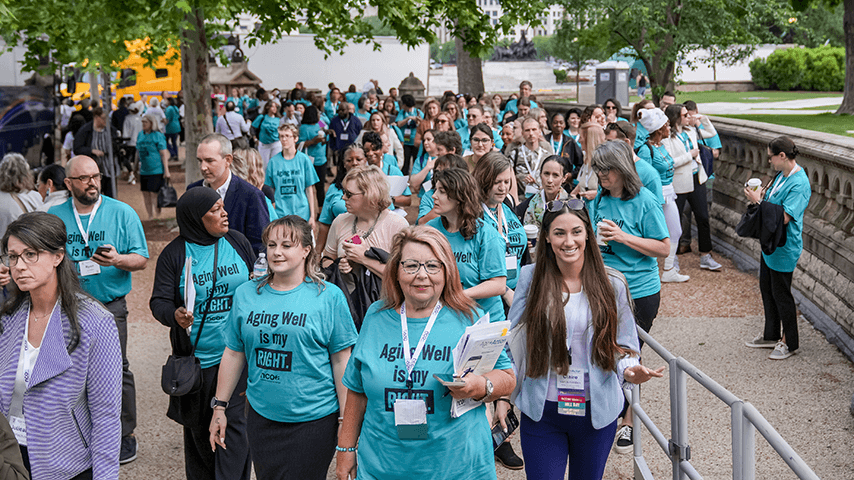
Related Topics
Key programs that support the nation’s older adults avoided significant cuts in the most recent funding measure approved by Congress. But that measure is temporary, and many essential programs and services are at risk.
As the federal fiscal year 2024 (FY24) began on Oct. 1, Congress narrowly avoided a shutdown of the government by passing a continuing resolution (CR) to provide funding through Nov. 17.
What did the temporary congressional funding do?
There were versions of the CR proposed in the House that would have resulted in significant cuts in non-defense discretionary (NDD) programs, including those under the Older Americans Act. Realizing such proposals would not pass in the Senate, the current CR simply provides funding at the same levels as FY23.
Some notable exceptions include the authority to spend more resources for social programs that accrue costs early in the fiscal year, including:
- The Low-Income Home Energy Assistance Program (LIHEAP) and
- The Commodity Supplemental Food Program (CSFP)
LIHEAP provides assistance with energy costs and includes help with purchasing heating fuel early in the season. CSFP provides healthy food boxes to food-insecure older adults.
The CR also contained provisions to temporarily extend statues due to expire at the end of FY23, including so-called “health extenders” to continue authorities and funding for programs such as the Special Diabetes Program and Community Health Centers.
What is NCOA advocating for?
NCOA is advocating to extend and increase funding for Medicare low-income beneficiary outreach and enrollment efforts, which was not included in the CR. The program has been extended 11 times over the past 15 years with bipartisan support. We urge advocates to tell their members of Congress to include this funding in the bill that we hope Congress will pass by Nov. 17.
Also expiring are significant parts of what is known as the Farm Bill. While Supplemental Nutrition Assistance Program (SNAP) benefits aren’t threatened with expiration, this debate provides an opportunity to improve the program to better serve older adults. What we’re actually facing is the need to protect current benefits, as we see proposals to make it more difficult to qualify for and retain benefits.
Our priorities for improving SNAP are focused on increasing benefits and simplifying access to and retaining those benefits. We applaud Senate Aging Chairman Bob Casey, D-Pa., for introducing the Senior Hunger Prevention Act to advance many of these policies in the Farm Bill debate.
It’s unacceptable that $30 million in federal benefits go unused each year because eligible older adults don’t apply. Nearly half of older Americans who qualify for SNAP do not enroll. Roughly 2 million people eligible for the Medicare Part D Low-Income Subsidy (LIS, or Extra Help) don’t sign up. Simplifying access to these crucial programs should be on every policymaker’s priority list.
What’s next for federal funding of programs that support older adults?
The House has only passed five of the 12 annual appropriations bills, and the Senate is still trying to pass a package of three bills. It is not clear how each chamber will finish its respective debates and reach compromises to pass final bills before the CR expires on Nov.17. The current vacancy in the Republican Speaker of the House leader position is also slowing down the process.
Will we see another government shutdown threat in mid-November, or will another CR be enacted to provide more time to finish FY24 appropriations? It’s very unclear right now.
Also unclear in the midst of this debate:
- Will health extenders be addressed?
- Will NCOA’s goals to continue and expand low-income Medicare beneficiary assistance be included?
You can help shape the future of these initiatives. Visit NCOA’s Action Center to learn more about these issues and ways you can communicate with your members of Congress. Everyone can educate and share crucial stories about your needs or the needs of those you serve.If you can lobby, urge Congress to increase investments in older adults.




